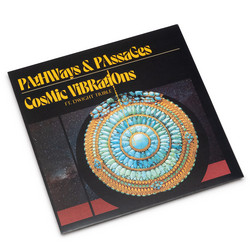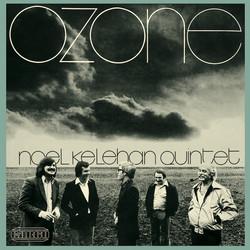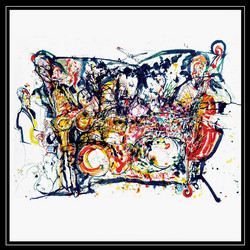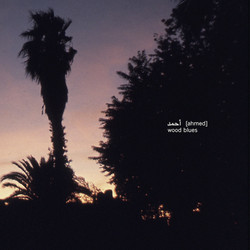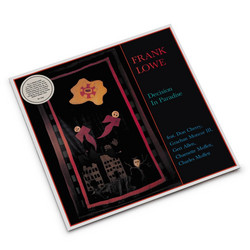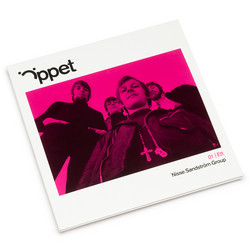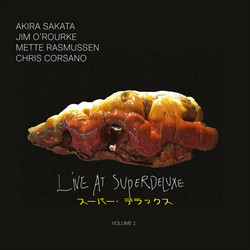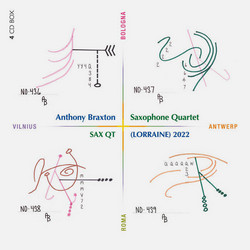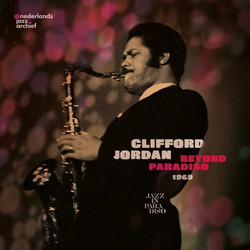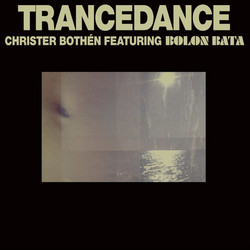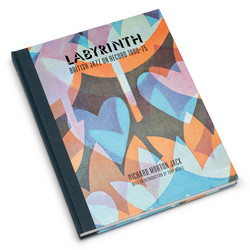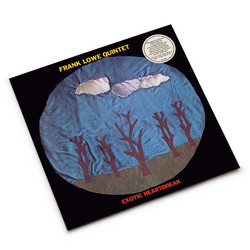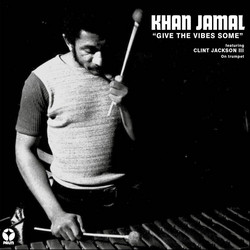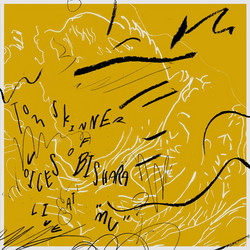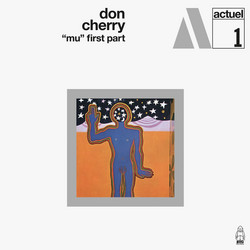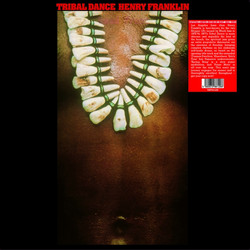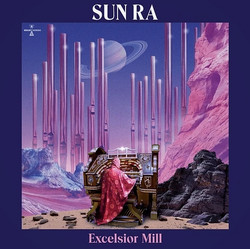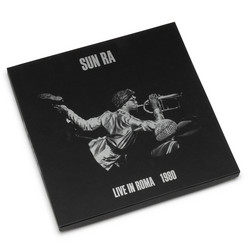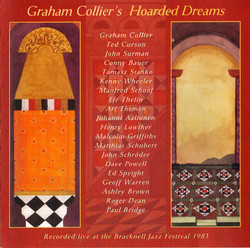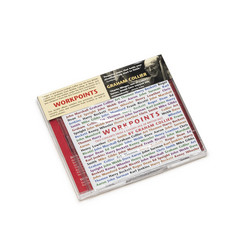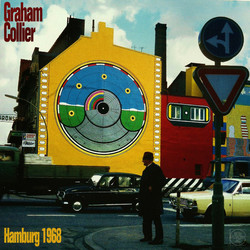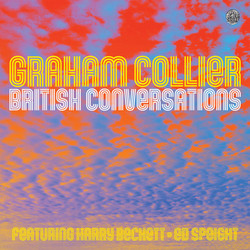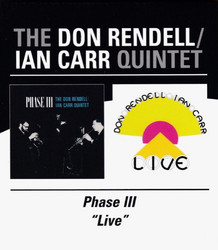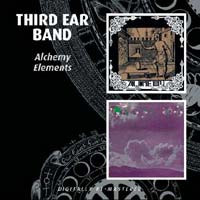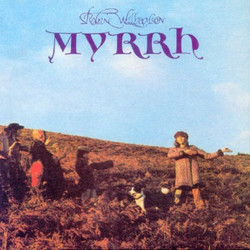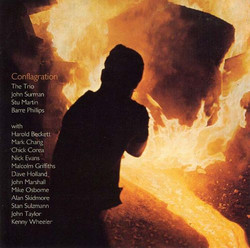Graham Collier
Down Another Road/Songs For My Father/Mosaics
The late 1960s and early 1970s were years when European jazz in general, and British jazz in particular, came into their own in terms of the music making a fundamental break with established, exclusively American precedents. This two-disc reissue of three Graham Collier albums made by the bassist/bandleader during the period underscores this contention. This is an exemplary reissue in terms of plotting the course of a music coming into its own. Equally importantly, both of these discs pass the repeated listening test with aplomb.
This three-LPs-on-two-CDs issue of bassist-composer Graham Collier’s second, third and fourth leader dates will hopefully garner his catalog the attention and the treatment that it deserves. Originally released on Philips (Mosaics) and Fontana (the other two), these scarce documents of British jazz briefly saw light again under license from Disconforme, but business difficulties fit for another discussion soon caused Collier’s catalog to languish. Thankfully, British progressive music label BGO is on the case with reissues straight from the master tapes. Just as Mingus’ music was a workshop not only for fleshing out and expanding upon compositional ideas but also for sidemen to grow in the spotlight, so Collier’s music helped several of England’s prominent jazz voices to shape their sounds. Trumpeter Harry Beckett is Collier’s most long-term foil, and appears on all three of these dates; other familiar names here include saxophonists Stan Sulzmann, Tony Roberts and Alan Skidmore, pianist John Taylor, and drummers John Marshall and John Webb.
Maybe it’s because it was the first of Collier’s records that I heard, but Down Another Road has always struck me as one of his most enduring statements committed to tape. Joined by Beckett, Marshall, Sulzmann, trombonist Nick Evans and pianist/reedman Karl Jenkins on five of the leader’s compositions (and Jenkins’ excellent fantasia “Lullaby for a Lonely Child”), Down Another Road is a rowdy follow-up to the gauzy openness of Deep Dark Blue Centre (Deram, 1967, also slated for BGO reissue). Sure, there is something of the boogaloo in the breakbeat-backed title tune and its churchy chords, but the unison theme is characterized by an entirely different weight – stately, lush, and out of phase with the expected Horace Silver-esque vibrations. Evans and Sulzmann are both excellently muscular soloists, and comparisons with gruff-toned modernists on this side of the pond may be apt (as if they needed it), but what’s interesting is how unquantifiable the tonal shifts are as riffs develop behind them.
“Danish Blue” is the date’s lengthiest – and perhaps strongest – statement, a multipart tone poem texturally having much in common with Gil Evans, albeit freer. A languid pastoral quickly gives way to collective improvisation, Jenkins’ classical filigree at once rhapsodic and clamorous. Central here is the mostly unaccompanied Harry Beckett solo, deft and lyrical, resoundingly physical while engaged in an ephemeral self-dialogue. An exposition of this kind of breadth leaves no wonder at why he flowered in the context of Collier’s music, and certainly what he brought to the band’s table. Jenkins’ oboe is in full force, adding pinched exoticism to lush brass and reed textures before exploding in dervish-like tongue speak in a fierce duo with John Marshall. Once the rhythm section kicks in, it’s probably one of the hippest oboe solos this side of Sonny Simmons’ cor anglais. Though starting off the second side of the LP, “The Barley Mow” seems segued in real time, an evenly paced character shift with flugelhorn and oboe trading webbed volleys over bass and bamboo-rods. While not as straight-to-the-gut as some of Collier’s later sides, Down Another Road presents a tipping point between overt structure and the freer forms that have characterized his work since.
Songs For My Father debuts the core of Graham Collier Music, with Beckett, Taylor, Webb, and saxophonists Alan Wakeman and Bob Sydor at the helm. They’re variously joined by Skidmore, Roberts, trombonist Derek Wadsworth, and guitarist Phil Lee on a suite of seven compositions. The presence of a four-saxophone line necessarily gives this set a woollier feel, but Collier’s deep anchor is perhaps clearer and an insistent bottom keeps things afloat no matter how jostled the improvisations get. “Song One (Seven-Four)” is like a bat out of hell, massive sonic bricks placed atop fleet rhythm and around the rangy choruses of Lee, Beckett and Wakeman. Wakeman’s soprano carries into “Song Two (Ballad),” a minor-key processional that finds the ensemble’s color fields spreading wide under his straight-horn wailing. It’s true that Collier’s third date is his loosest so far, in that the heads are brief and soloists get a harmonically wide berth, driven as well as bolstered by riffs and maddeningly knotty rhythms.
A smaller unit, the same as the base of Songs but with Geoff Castle replacing John Taylor, graces the live recording of Mosaics, a series of directed improvisations on thematic cues and outlines. Recorded in December 1970, a scant few months after its predecessor, the ground tread by the sextet is similar in concept. “Theme 1” contains a vamp nearly oppressive in its duskiness, Castle’s pedal point anchoring dissonant horn sketches and Webb’s broken juggernaut. Beckett’s assemblage of broken brass tiles segues into a dialogue with Wakeman’s chirps and trills in the introduction to “Part Two,” which starts as a brightly-toned ballad with a murky undertow and includes a lengthy solo percussion piece. Webb builds thematic jabs piece by piece, from isolated side notes to calypso-inflected tub work.
“Part Three” begins with unaccompanied flugelhorn chortles, neighs and sighs that remind one of a mellow-toned Bill Dixon. Though Collier has said he’s not much of a bass soloist, the way he draws lines around Beckett shows his instrumental mettle – even if it doubles as a compositional cue for the ensemble. Mosaics is a fitting name for an approach that interlocks fragments befitting a larger whole, isolated in-themselves. Collier’s own record label also took this name, begun shortly after this LP was waxed and the British majors had scuttled their jazz programming. Thankfully, there’s an effort to keep this music available to a wider jazz public.
